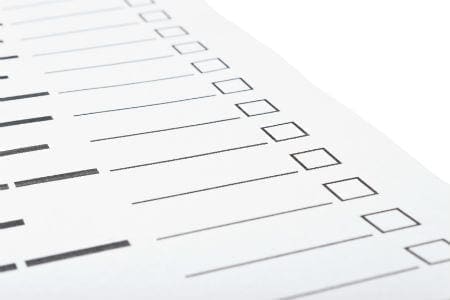Measuring Without Data
by Stacey Barr |A perceived lack of data – or lack of data with reasonable quality – is a constraint that stops many people from even trying to develop meaningful performance measures. That sounds logical enough, but it assumes that value of measurement only comes at the end of the process. What if you measured without data?

The value of measurement doesn’t just come at the end of the process, at the point where you have used a measure to reach an important target. A huge amount of value comes early on, in the kind of thinking that’s demanded of us when we conceive a measure.
We conceive a measure when we have a performance result or goal we want to achieve. The measure is the evidence that will help us know when that goal is achieved, by its values reaching a target. But even before any progress at all is made toward that target, the measure has served us in several very useful ways.
I don’t collect data for one of my measures: Workplan Spill, the number of hours spent on work tasks that are outside set working hours each week. My goal, the goal that this measures, is ‘work and life is by design’.
And like I said, I don’t collect the data for this measure. I might one day, but right now, just the act of creating the measure has been profoundly valuable.
Firstly, the steps to decide on the measure Workplan Spill meant I had to think a bit more deeply about what my goal meant. I had to make it clearer and more specific. To me ‘work and life is by design’ is about choosing the lifestyle I want to have and then designing the boundaries that will enable it. One of the boundaries is to limit my work hours so I can have more time to recharge from work, and enjoy the growing success of my business. I want to get better at working only on what really matters, so I can work less. So the measure of Workplan Spill came about because the most useful evidence of successfully controlling my work hours was how much work wasn’t getting done as planned.
Secondly, the fact that Workplan Spill is quantitative means I know what I’m trying to improve in a very tangible sense. So I choose when I will start and finish each day. I am careful to anticipate the time load of the tasks I plan each week and each day. I notice distractions before they sabotage my time. I make deliberate decisions about which tasks I could delegate, downsize, dissect, or delete, without my goals suffering. Without any data at all, the measure of Workplan Spill is fundamentally changing my awareness and my choices.
We don’t necessarily need data to make better decisions from our measures. Yes, it’s much better when we do have the data, because we still need that data to know the size of change those decisions bring about, especially when the results are not right in front of us.
My point is this: don’t ever let a lack of data stop you from figuring out how to measure something. If you use PuMP, then this means go all the way through to Step 5, even if you know you haven’t got the data. And just knowing how you’d measure the goal can focus you on doing the right things to achieve it.
DISCUSSION:
What have you been holding back from measuring, due to a lack of data?
Connect with Stacey
Haven’t found what you’re looking for? Want more information? Fill out the form below and I’ll get in touch with you as soon as possible.
167 Eagle Street,
Brisbane Qld 4000,
Australia
ACN: 129953635
Director: Stacey Barr




